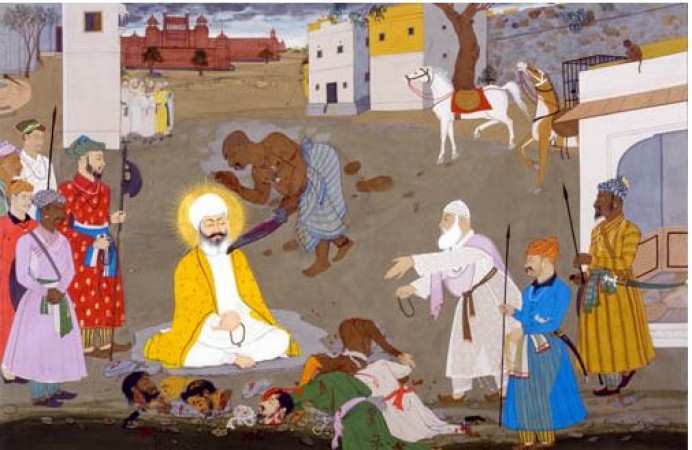
Aurangzeb's rule, though a significant chapter in Indian history, is marred by a series of merciless acts that reverberate through time. Here are five of his most brutal deeds, backed by historical references, that cast a somber shadow on his legacy:
Iconoclastic Fury:
Aurangzeb's reign witnessed the widespread destruction of Hindu temples, including the Kashi Vishwanath Temple in Varanasi and the Vishnu Temple in Mathura. His campaign of religious intolerance not only robbed communities of their sacred spaces but also fueled communal discord. The historian Jadunath Sarkar's records highlight these temple desecrations, portraying a grim picture of Aurangzeb's disregard for cultural diversity.
Fraticidal Executions:
In his pursuit of power consolidation, Aurangzeb executed his own family members with ruthless efficiency. His elder brother, Dara Shikoh, was defeated, humiliated, and put to death, as documented by Mughal historian Khafi Khan. This fratricidal violence exposed the extent of Aurangzeb's ambition, showcasing his willingness to eliminate kin to secure his reign.
Guru Tegh Bahadur's Martyrdom:
The martyrdom of Guru Tegh Bahadur, the ninth Sikh Guru, serves as a stark illustration of Aurangzeb's religious persecution. Sikh chroniclers like Bhai Santokh Singh recount the Guru's steadfast refusal to embrace Islam, leading to his brutal execution. This act ignited Sikh resistance and solidified their commitment to religious freedom.
Economic Exploitation and Taxation:
Aurangzeb's military campaigns and extravagant lifestyle strained the economy, leading to excessive taxation. As documented by Mughal chronicler Ishwar Das Nagar, this burden fell heavily on the populace, causing immense suffering. The economic strain triggered social unrest and further weakened the fabric of society.
Reign of Terror:
Aurangzeb's rule was marked by widespread terror, reflected in instances of mass executions, public floggings, and draconian punishments. His relentless pursuit of power is detailed in historical accounts like the "Tarikh-i-Alfi," revealing a ruler who brooked no opposition and crushed dissent with an iron fist.
In sum, the historical record paints a grim picture of Aurangzeb's reign, characterized by cruelty, religious intolerance, and disregard for human rights. His legacy continues to evoke complex emotions, serving as a stark reminder of the perils of unchecked authority and the far-reaching impact of tyranny.
Veer Savarkar: Unveiling the Trailblazer of India's Freedom Journey
Tatya Tope: A Resilient Force in India's Fight for Independence
Paths to Independence: Subhash Chandra Bose and Mahatma Gandhi's Vision for India